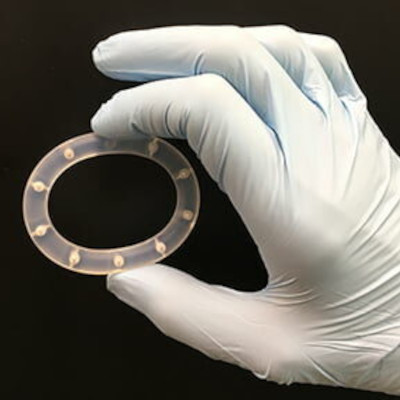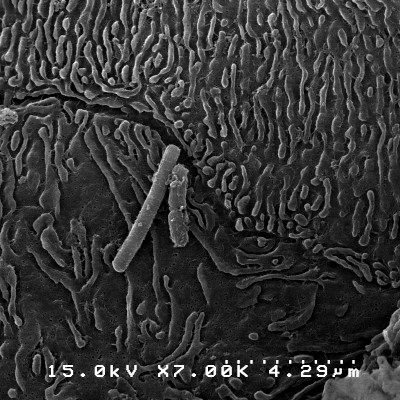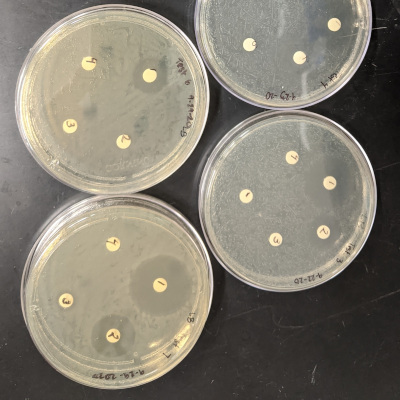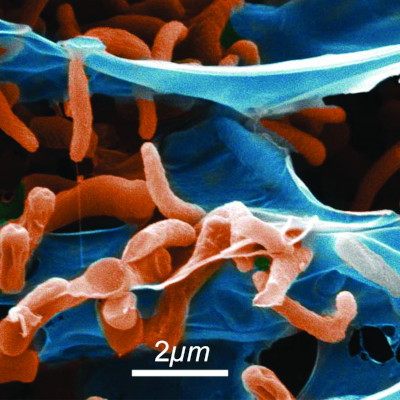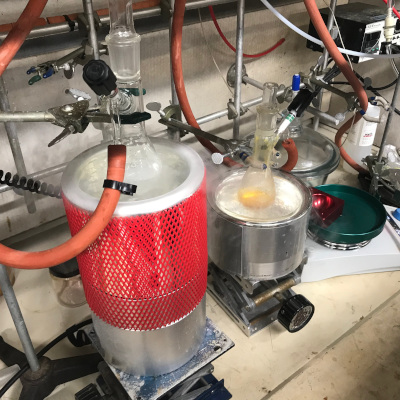
Chemistry, Biology, and Medical Science Research
Oak Crest is continually investigating new areas and making new discoveries at the forefront of science. Below are some key areas of research that we are actively engaged in.
Environmental & chemistry research
A major research focus at Oak Crest is dedicated to answering questions with an environmental focus using chemistry and biology approaches.
- Air and Water Quality. Atmospheric science research at Oak Crest varies from field-based studies on the impact of vehicle exhaust emissions on air quality to laboratory investigations on fundamental atmospheric processes and spectroscopic instrument development. The water quality research primarily involves the development of novel sensor platforms for low level monitoring as well as field studies on chemical and biological processes in urban watersheds.
- Microbiology. Microbial ecology of communities in specialized niches ranging from asphalt pools to the latex of Euphorbia plants (spurges) is being studied at Oak Crest using a combination of multi-omics approaches with imaging and isolation. Biocatalysis is another major research focus and includes the isolation of bacterial cultures and genes followed by library screening to achieve stereoselective conversions of interest to synthetic chemists. Laboratory and field studies are directed at improving our understanding of the formation and development of bacterial biofilms.
- Prebiotic Metabolism and the Origin of Life. We are studying various aspects of prebiotic metabolism relating to the emergence of life on Earth as well as possible clues for life on icy worlds. Some of this research aim to simulate hydrothermal vents and study the mineral-organic chemistry of the high energy interfaces.
- Catalysis and Energy. The catalysis program primarily is dedicated towards developing novel strategies for carbon dioxide chemical activation and fixation into high-value materials. The energy research involves new spectroscopic sensors for use in energy production, and the development of novel light absorbing systems inspired by nature for solar conversion.
Biomedical research
A major research arm at Oak Crest consists of developing solutions to important medical challenges, primarily in infectious diseases, using innovative chemistry and biology approaches.
- Controlled Release Drug Delivery. Adherence to compliance and toxicity from the large doses administered to maintain therapeutic levels are two major problems with standard drug delivery methods. We have an extensive drug delivery program that addresses these issues through controlled and directed release of the drug in vivo in a manner that optimizes the pharmacokinetics, safety, and efficacy.
- Medical Instrumentation. Breath analysis is a powerful, non-invasive technique to obtain valuable diagnostic information such as cardiac output, pulmonary function, and pulmonary diffusive capacity, among others. We have developed a range of novel devices that meet these important needs using miniaturized, high speed, spectroscopic platforms.
- Bacterial Biofilms. A wide range of chronic infections are associated with bacterial biofilms and treatment of these conditions has proven difficult. Little is known about how these communities are established in vivo and how the various species interact. We are studying the multiomics of microbial communities in biofilms from samples collected directly from patients suffering from a range of chronic infections in an attempt to better understand these complex systems.
- Therapies for Infectious Diseases. Infectious diseases such as HIV/AIDS, tuberculosis, and malaria make up some of the most urgent global health priorities. We are investigating innovative approaches to these developing world problems, including isolation and characterization of natural products from plant sources, probiotics, an phage therapy.

